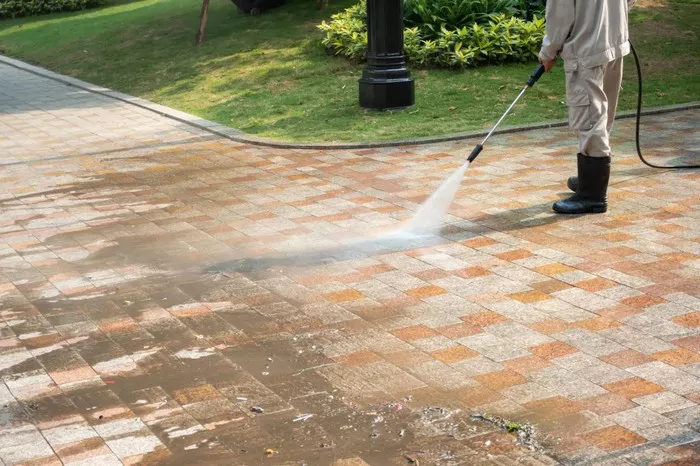Pressure washers have become popular tools for cleaning various surfaces. They are used for washing driveways, patios, cars, and even the exterior of houses. However, a common question arises: do pressure washers waste a lot of water? This article will explore this topic in detail, discussing how pressure washers work, their water usage compared to traditional methods, and ways to use them efficiently.
See Also : Do Jet Washers Use a Lot of Water: What You Need To Know
How Pressure Washers Work
A pressure washer is a device that uses high-pressure water to remove dirt, grime, and other debris from surfaces. It consists of a motor, a pump, and a high-pressure hose with a nozzle. The motor can be electric or gas-powered. The pump increases the water pressure, and the nozzle controls the direction and intensity of the water spray.
Pressure washers come in various sizes and power levels. Light-duty models are suitable for small tasks like cleaning cars and patio furniture. Medium-duty models can handle larger jobs like cleaning fences and driveways. Heavy-duty models are used for more demanding tasks such as stripping paint and cleaning large surfaces.
Water Usage in Pressure Washers
Comparing Pressure Washers to Garden Hoses
One of the main advantages of pressure washers is their efficiency in water usage. Traditional garden hoses typically have a flow rate of about 10 gallons per minute (GPM). In contrast, pressure washers use significantly less water. The average flow rate of a pressure washer ranges from 1.5 to 4 GPM. This means that pressure washers can clean surfaces more effectively while using less water.
Water Savings with Pressure Washers
Despite the high pressure, pressure washers use less water because they clean surfaces faster and more efficiently. For example, cleaning a driveway with a garden hose might take hours and use hundreds of gallons of water. A pressure washer can do the same job in a fraction of the time, using much less water.
Environmental Impact of Pressure Washers
Water Conservation
Using pressure washers can contribute to water conservation efforts. In regions where water is scarce, reducing water usage is crucial. Pressure washers help by using water more efficiently, thus minimizing waste.
Energy Consumption
While pressure washers use less water, they do consume energy. Electric models are more energy-efficient than gas-powered ones. Using energy-efficient pressure washers can further reduce the environmental impact.
Chemical Use
Pressure washers often require cleaning agents to remove stubborn stains. Using environmentally friendly detergents can minimize the negative impact on the environment. Many pressure washers come with built-in detergent tanks, allowing for controlled use of cleaning agents.
Efficient Use of Pressure Washers
Choosing the Right Pressure Washer
Selecting the appropriate pressure washer for the task is essential. Using a heavy-duty model for a light job wastes energy and water. Conversely, using a light-duty model for a heavy job may require more time and water. Matching the pressure washer to the task ensures efficient use of resources.
Proper Technique
Using the correct technique can enhance the efficiency of a pressure washer. Holding the nozzle at the right distance from the surface ensures effective cleaning without wasting water. Moving the nozzle in a consistent pattern helps cover the entire area evenly.
Regular Maintenance
Maintaining the pressure washer in good condition ensures it operates efficiently. Regularly checking and cleaning the filters, hoses, and nozzles can prevent blockages and leaks. Proper maintenance extends the lifespan of the pressure washer and reduces water and energy consumption.
Common Myths About Pressure Washers
Myth 1: Pressure Washers Use More Water Than Garden Hoses
As discussed earlier, pressure washers use less water than garden hoses. The high-pressure spray cleans surfaces more effectively, reducing the overall water usage.
Myth 2: Pressure Washers Are Too Powerful for Delicate Surfaces
While it’s true that pressure washers can damage delicate surfaces if used incorrectly, many models come with adjustable pressure settings. Using the appropriate pressure setting ensures safe and effective cleaning.
Myth 3: Pressure Washers Are Complicated to Use
Modern pressure washers are designed to be user-friendly. They come with easy-to-follow instructions and safety features. With a little practice, anyone can use a pressure washer effectively.
Case Studies: Real-World Examples
Residential Cleaning
In residential settings, pressure washers are commonly used for cleaning driveways, patios, and house exteriors. Homeowners often find that using a pressure washer saves time and water compared to traditional methods.
Commercial Cleaning
Businesses also benefit from using pressure washers. For example, car wash facilities use pressure washers to clean vehicles quickly and efficiently. This reduces water usage and improves customer satisfaction.
Industrial Cleaning
In industrial settings, pressure washers are used for heavy-duty cleaning tasks. Factories and warehouses use them to remove grime and debris from equipment and floors. This ensures a clean and safe working environment while minimizing water waste.
Tips for Using Pressure Washers Efficiently
Plan Ahead
Before starting a cleaning project, plan the work area and gather all necessary tools and supplies. This reduces downtime and ensures efficient use of the pressure washer.
Use the Right Accessories
Different nozzles and attachments are available for various cleaning tasks. Using the right accessory enhances the efficiency of the pressure washer.
Monitor Water Usage
Keep an eye on water usage during the cleaning process. If the pressure washer is using more water than expected, check for leaks or other issues.
Conclusion
Pressure washers are efficient tools for cleaning various surfaces. They use less water than traditional methods, making them a more environmentally friendly option. By selecting the right pressure washer, using proper techniques, and maintaining the equipment, you can maximize efficiency and minimize water waste. Pressure washers are not only effective but also help conserve water, making them a valuable addition to any cleaning arsenal.

